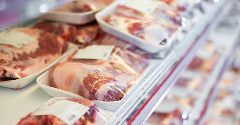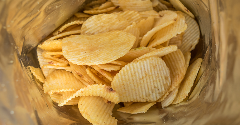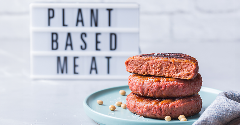News
In Ireland, Subway’s sandwich rolls are not legally bread
13 Oct 2020The Irish Supreme Court ruled that Subway bread is not legally considered as such. Instead, its sugar content, which is five times above what Irish law specifies as the acceptable threshold for bread, lands the company’s sandwich rolls in the confectionery category. The ruling was a result of a tax dispute case.
This finding by Ireland’s highest court requires Bookfinders Ltd., an Irish Subway franchise, to pay a value-added tax (VAT) on its sandwiches. Sweets and pastries are not considered an essential food under Irish law and are, therefore, subject to a value-added tax of 13.5 percent under Ireland’s VAT Act of 1972. “Staple foods,” like bread, are not subject to this tax. However, to qualify as a staple product, the Irish government defines bread as a product where “fat, sugar and bread improver, subject to the limitation that the weight of any ingredient specified in this subclause shall not exceed 2 percent of the weight of flour included in the dough.”

In the judgment, the court ruled, "There is no dispute that the bread supplied by Subway in its heated sandwiches has a sugar content of 10% of the weight of the flour included in the dough, and thus exceeds the 2% specified."
Subway maintains that its bread is only bread, and MarketWatch reported that the company is currently reviewing the tax ruling.
This latest ruling from the Irish Supreme Court was heard on appeal after the case meandered through four appellate courts over 14 years where it was heard and then subsequently dismissed in each case. Subway’s Galway-based franchisee sued the Irish taxing authorities for a refund of VAT paid between 2004 and 2005. The company argued that its heated sandwiches, coffees and teas were eligible for 0% VAT. The composite VAT rate they paid was 9.2%.
Subway is not unfamiliar with controversy. The company came under scrutiny in 2014 when reports surfaced that its bread was baked with a chemical used in yoga mats. In response, the company removed the ingredient and changed the recipe. Depending on whether the company accepts the ruling from the country's highest court, it could consider another reformulation of its sandwich rolls in order to qualify under the legally defined definition for bread.
Related news

Danish Crown’s ‘climate-controlled’ claim misleading, court finds
20 Mar 2024
Leading EU pork producer Danish Crown has been found guilty of greenwashing by misleading consumers with marketing claims about its “climate-controlled” pork and “climate-friendly” production.
Read more
Ultra-processed food intake in South Africa at concerning levels, study suggests
19 Mar 2024
As South Africa considers introducing front-of-pack warning labels and strict marketing limits for unhealthy foods, research has found that low-income South Africans get around half of their calories from ultra-processed foods (UPFs) – “a cause for con...
Read more
Brazilian manufacturers must comply with warning label regulation, says court
7 Mar 2024
The Federal Court of São Paulo has ruled that Brazilian manufacturers must comply with front-of-pack labelling regulation that requires unhealthy products to feature warning labels, scrapping a last-minute one-year extension.
Read more
US pet food regulations unravel the mysteries of product labelling
4 Mar 2024
New regulations governing the labelling of pet foods were approved by AAFCO members last July, providing the first major update to pet food regulations in 40 years. The move was a response to pet owners asking for clarity on labels that left many confu...
Read more
Pesticide residues in conventional baby food: A boost for organic?
29 Feb 2024
Nearly four in 10 (38%) of conventional US baby food products contain pesticide residues, according to research that also found that the organic samples were pesticide-free. Could this be an opportunity for organic or ‘pesticide-free’ produce?
Read more
Singapore's Islamic council: Cultivated meat can be halal
16 Feb 2024
The Islamic Religious Council of Singapore (MUIS) has said that cultivated meat consumption is permissible as halal under certain conditions, and where a more “rigorous” set of requirements are needed to ensure consumer assurance.
Read more
‘Not for EU’ label signals confusion and extra costs
6 Feb 2024
With affordability, variety, and choice paramount in today’s uncertain landscape, concerns exist around the UK’s “Not for EU” label.
Read more
Plant-based and processed: Avoiding the next big health debate
2 Feb 2024
Calls for clarity around ultra-processed food (UPFs) and ongoing debates on potential classification may bring the health credentials of plant-based food under the spotlight, which is why education is so necessary.
Read more
Is it useful to classify foods as ultra-processed?
26 Jan 2024
The term ‘ultra-processed’ is gaining traction – and notoriety. But does it help consumers make healthier food choices or encourage manufacturers to make their ultra-processed products healthier? Food industry stakeholders explored the term’s usefulnes...
Read more
‘Healthy’ additives make ultra-processed foods more appealing
4 Jan 2024
Almost three-quarters (74%) of Americans would try an ultra-processed food if it provided a health benefit such as better sleep, better immunity, or increased energy, according to an industry survey.
Read more